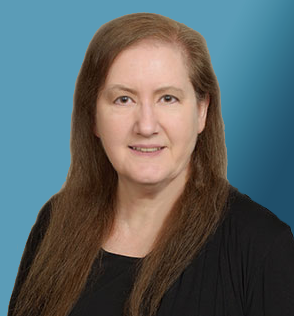Artificial Intelligence (AI); data processing, storage, and security; facial recognition; and GPS area all areas of technological advancements that are being implemented into more and more aspects of society, bringing growing concerns around the cognizance of technology developers and implementing bodies of the ethical implications of the tech. Professor Tamara Phillips Fudge shares her valuable insights and guidance on the many applications for the research within her latest IGI Global book publication,
Exploring Ethical Problems in Today’s Technological World (ISBN: 9781668458921).
| | Exploring Ethical Problems in Today’s Technological World | Prof. Tamara Phillips Fudge (Purdue University Global, USA)
©2022 | 385 pgs. | ISBN: 9781668458921 | - Offering the Latest Research Findings from 20+ Scholars Hailing from 10 Institutions in Six Countries
- Suitable for Policymakers, Industry Professionals, Researchers, & More
- Covers Topics such as Ethical Issues, Data Rights, & Artificial Intelligence
- Features 16 Chapters on the Latest, Peer-Reviewed Research
|
| |
|
|
To better understand these ethical dilemmas created by today's ever-changing technologies and how these issues continue to affect individuals, companies, and society, this recent book explores the impacts of decisions made by technology companies on everyday life through the modern research lens of experts in technology, law, cyberpsychology, business and more. Below you will find Professor Fudge's simple guide to some of the applications of the book, as well as her personal insights into this research.
What inspired you to lead this book project?
Prof. Fudge: Technology can be both awe-inspiring and terrifying, as there are so many things we can do today that we could not yesterday. We have to question whether or not each of these new developments is in the best interest of our world – or not.
How does your publication stand out from others like it?
Prof. Fudge: There are surely other sources for technology ethics, but this volume's chapters present an excellent depth and detail on a wide variety of concerns – all in one volume.
What is your professional background that gives you the knowledge needed to lead this publication?
Prof. Fudge: I currently teach IT students and write university curriculum, but have a rather unique background in writing and the organization of ideas. This includes the development of a detailed academic advisor's handbook for one university, serving as editor/writer/desktop publisher for another school's diversity news, and writing 70 newsletters for a small college. I also wrote and taught music curriculum and used to be a weekend correspondent for the Quad-City Times (Davenport, IA).
How is Exploring Ethical Problems in Today’s Technological World going to impact your field of research and how does it relate to current trends and social matters?
Prof. Fudge: Being informed is crucial for both the individual and an organization; as a teacher I see this as an important point in anything we read. Someone might not realize that DNA collection for genealogical purposes could be used by law enforcement, for example. They could think that simply not buying an autonomous car keeps that technology from affecting them, but this is not the case! Whether people are aware or not, all technology has the potential to affect every one of us.
Who will benefit from the research within Exploring Ethical Problems in Today’s Technological World
Prof. Fudge: College and university students, faculty and curriculum developers, IT professionals and managers, politicians who need background for proposing or changing legislation about technologies, and businesses with concerns about technology and ethics could benefit from reading these chapters. Others who are researching these topics may find new ideas and viewpoints, too.
What are some future directions for your research?
Prof. Fudge: Research and writing never ends – and technology keeps advancing! Perhaps a second volume could be in the not-too-distant future with new topics to explore.
About the Editor

Tamara Phillips Fudge, DMus., is a full-time professor in the graduate technology programs at Purdue University Global. She has won fellowships and awards for innovation and teaching, and has taught a wide variety of topics, including web development, human-computer interaction, systems analysis and design, and those featuring documentation, diagramming, problem-solving, and presentation. Her career started with music degrees from Indiana University and Florida State University. She sang opera, oratorio, and in recital; her compositions have been heard on Public Radio, at various universities, and a state choral convention. She taught vocal and choral music, piano, pedagogy, foreign language diction, opera production, music theory, composition, and related courses in the traditional college classroom for 20-odd years. For 7 years, she was a weekend correspondent for the Quad-City Times (Davenport, IA). Following a brief stint as an agent/registered representative selling life and health insurance and variable products, she returned to school with a keen interest in technology and has since distinguished herself in online teaching, coordination of large projects, and curriculum development.
Related Digital Ethics Books
About IGI Global
Founded in 1988 and headquartered in Hershey, Pennsylvania, USA with a subsidiary office (IGI Science and Technology, Ltd.) operating out of Beijing, China, IGI Global is a leading medium-sized independent international academic publisher of scholarly reference sources. They are committed to facilitating the discovery of pioneering scientific research that enhances and expands the body of knowledge available to the research community through traditional and open access publishing workflows. Working in close collaboration with more than 150,000+ expert researchers and professionals from leading institutions, IGI Global publishes quality peer-reviewed content in three major academic subject areas:
Learn more about IGI Global
here.